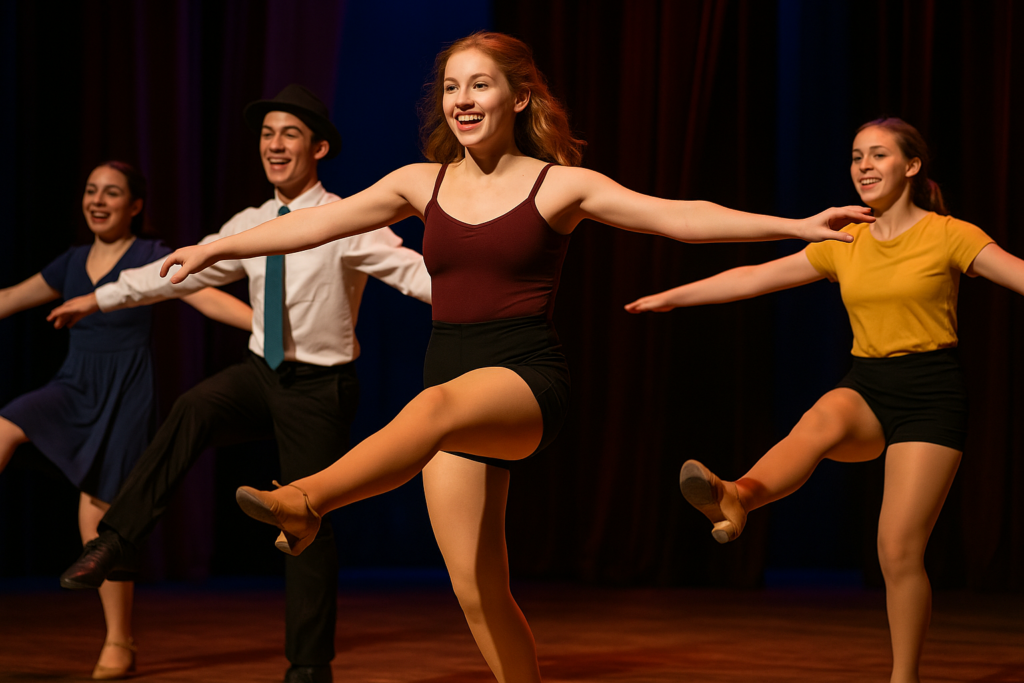
Musical theatre has always held a special place in the performing arts, combining storytelling, acting, music, and movement to create powerful performances. For many, stepping into musical theatre dance classes feels like the first step toward the stage. Yet the benefits extend far beyond theatre itself. Students walk away not only with stronger dance abilities but also with life skills that carry into classrooms, workplaces, and social settings. This article explores how these classes provide far-reaching value, from boosting confidence to building community.
Musical Theatre Dance Classes in Canberra are a prime example of how training designed for the stage can enrich daily life in meaningful ways.
Building Confidence and Stage Presence
Confidence is often described as the backbone of performance, and it is one of the first qualities developed in musical theatre training. Standing in front of others, moving to choreography, and embracing a role helps students feel comfortable being seen. This confidence translates into everyday scenarios such as delivering a presentation at school, attending a job interview, or speaking up in group settings.
In addition to body awareness and projection, students gain the courage to take creative risks. Performance teaches them to step outside their comfort zones and accept that mistakes are part of growth. For readers interested in broader self-improvement, Downgpt’s coverage on personal development provides further insight into the ways confidence shapes long-term success.
Teamwork and Collaboration Through Performance
Musical theatre is rarely a solo pursuit. Performances depend on synchronised choreography, coordinated singing, and shared stage time. Students learn the importance of listening to others, adapting to changes, and respecting each member’s role.
These collaborative skills mirror the challenges of group projects, workplace environments, and even community initiatives. A student who has mastered blending their voice with others in a musical is better prepared to contribute constructively in real-world team dynamics. This connection between the arts and broader collaboration is echoed in Downgpt’s insights on teamwork in creative industries, showing just how transferable these skills may be.
Enhancing Physical Fitness and Mental Agility
Dance is a physically demanding discipline. Through regular practice, students build strength, flexibility, and stamina. The movements also encourage coordination and balance, which contribute to better posture and overall health.
But it is not only the body that benefits—musical theatre challenges the brain as well. Memorising choreography and lyrics sharpens memory. Keeping time with music develops focus and mental agility. The brain is constantly engaged in problem-solving, whether through adjusting steps or interpreting emotional cues from a scene.
This marriage of physical and mental growth highlights why musical theatre is such a rewarding pursuit for people of all ages.
Storytelling Skills Beyond the Stage
One of the defining features of musical theatre is its ability to tell stories through movement and music. Students learn to embody characters, convey emotion, and engage an audience without relying solely on words.
These storytelling skills strengthen communication in broader contexts. From persuasive business presentations to heartfelt personal conversations, the ability to capture attention and express emotion clearly has universal value. Storytelling is a timeless human skill, and musical theatre nurtures it in accessible and memorable ways.
Creating Lifelong Connections and Community
The arts have always been about connection, and musical theatre is no exception. Dance classes bring together students of different ages, backgrounds, and goals, creating a shared space where friendships are built.
For many, these connections become just as rewarding as the performances themselves. In Canberra, the sense of community is particularly strong, with Musical Theatre Dance Classes in Canberra offering not just training but also the chance to become part of a supportive local arts culture.
Community-driven environments like these foster belonging and provide safe spaces for creative expression. Students often describe the camaraderie of rehearsals and performances as one of the most valuable aspects of their training.
Musical Theatre as a Pathway to Broader Opportunities
While many participants attend musical theatre dance classes for personal growth or enjoyment, others find the training opens unexpected doors. Skills gained may support future pursuits in teaching, choreography, acting, or even leadership positions outside the performing arts.
The discipline and adaptability required in the theatre often stand out in résumés, signalling creativity and resilience to potential employers. Alumni of musical theatre programs frequently credit their training with giving them the confidence and resourcefulness needed to succeed in non-arts careers.
Musical theatre, then, is not just an extracurricular activity—it may become a foundation for lifelong success in many areas.
Conclusion
Musical theatre is often associated with bright lights, costumes, and applause, but its influence stretches far further. Students who participate in musical theatre dance classes gain confidence, teamwork abilities, improved fitness, storytelling skills, and community connections that serve them in countless ways throughout life.
Whether one is aspiring to a career in the arts or simply looking for a way to grow personally and socially, the lessons learned extend well beyond the stage. For those in Canberra, joining Musical Theatre Dance Classes in Canberra offers not only artistic training but also the chance to embrace a practice that nurtures creativity, connection, and confidence.